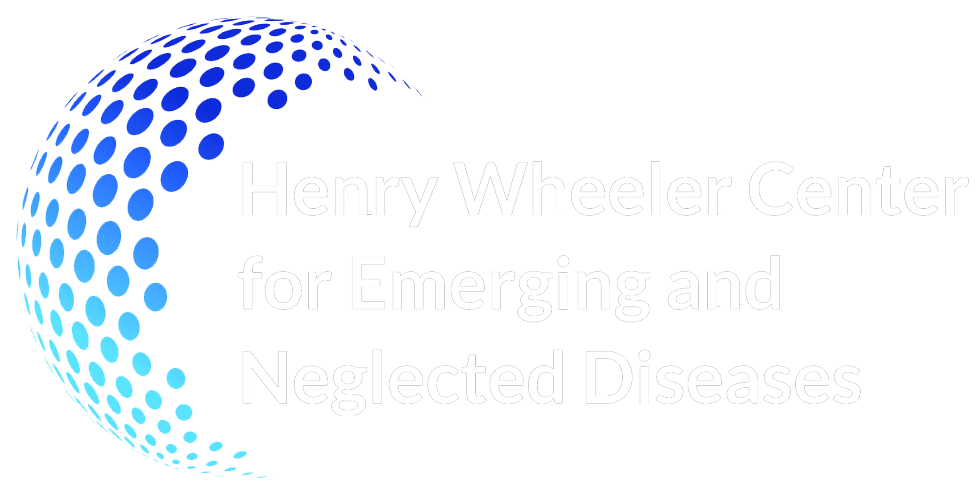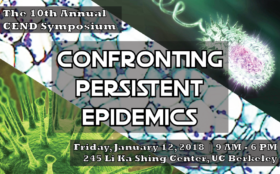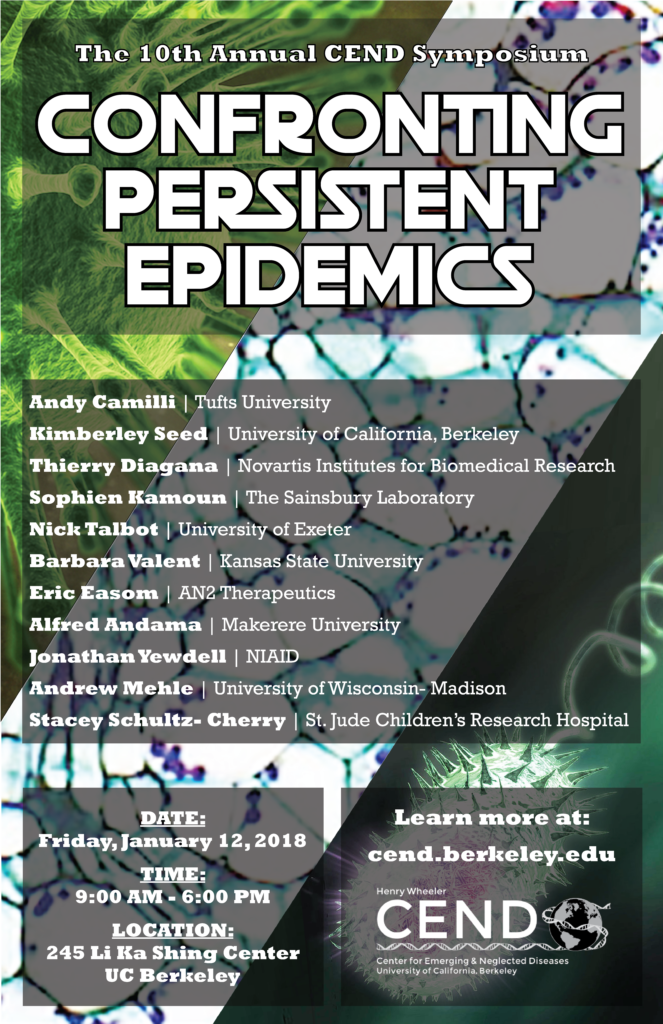The 9th Annual CEND Symposium took place on March 31, 2017
Deconstructing TB: Insights from Fundamental Research
For a story about the 9th Annual Symposium, please follow this link.
Videos of the 2016 and 2017 Symposium Events
-
Andy Camilli, Tufts University
Preventing Cholera Using Bacteriophages The biological factors that govern the dissemination and transmission of tox... -
Kimberley Seed, University of California, Berkeley
Recurring Conflicts with a Single Predatory Phage Drive the Evolution of Vibrio cholerae The waterborne pathogen and... -
Thierry Diagana, Novartis Institutes for Biomedical Research
Drug Discovery at the Novartis Institutes for Biomedical Research The Novartis Institute for Tropical Diseases (NITD... -
Sophien Kamoun, The Sainsbury Laboratory
BLASTOFF – Keeping Up With A Cereal Killer Infectious plant diseases cause havoc to world agriculture and thre... -
Nick Talbot, University of Exeter
Combating the Cereal Killer: Investigating the Biology of Rice Blast Disease Rice blast is one of the most serious d... -
Barbara Valent, Kansas State University
Follow the Effectors: Understanding Ancient and Emerging Blast Diseases on Rice and Wheat The ascomyceteous fungus, ... -
Jonathan Yewdell, NIAID
Coming to Grips with Flu Drift Influenza A virus (IAV) imposes a significant socio-economic burden on humanity, kill... -
Andrew Mehle, University of Wisconsin-Madison
Repurposing Canonical Antiviral Responses to Promote Viral Infection Cells infected by influenza virus mount a large... -
Stacey Schultz-Cherry, St. Jude Children’s Research Hospital
100 Years and Counting: Influenza Continues to Stump Us This year will mark the 100th anniversary of the 1918 influe... -
Clifton E. Barry III, National Institutes of Health
Radiohistochemistry: Understanding TB Lesion Pathology and Its Response to Chemotherapy Advances in PET/CT imaging o... -
Eric Rubin, Harvard University
One of These Things is Not Like the Other One: Phenotypica Heterogeneity in Mycobacteria Diverse populations offer o... -
Panel Discussion: Tuberculosis Research: Where (and How) Do We Go From Here?
Moderated by Erika Check Hayden... -
Megan Murray, Harvard University
Nutritional Risk Factors for TB Progression: Results of a Longitudinal Cohort Study We followed a cohort of househol... -
Louis J. Picker, Oregon Health and Sciences University
CMV Vectors: Exceptional Efficacy from Unconventional Cellular Immune Responses... -
Tom Dubensky, Aduro Biotech
Insights from Listeria monocytogenes for the Development of Effective Cancer Immunotherapy Strategies Despite the pr... -
Rafi Ahmed, Emory University
T-Cell Memory and Exhaustion ... -
James P. Allison, Anderson Cancer Center
Immune Checkpoint Blockade in Cancer Therapy: New Insights, Opportunities, and Prospects for a Cure The existence of...


